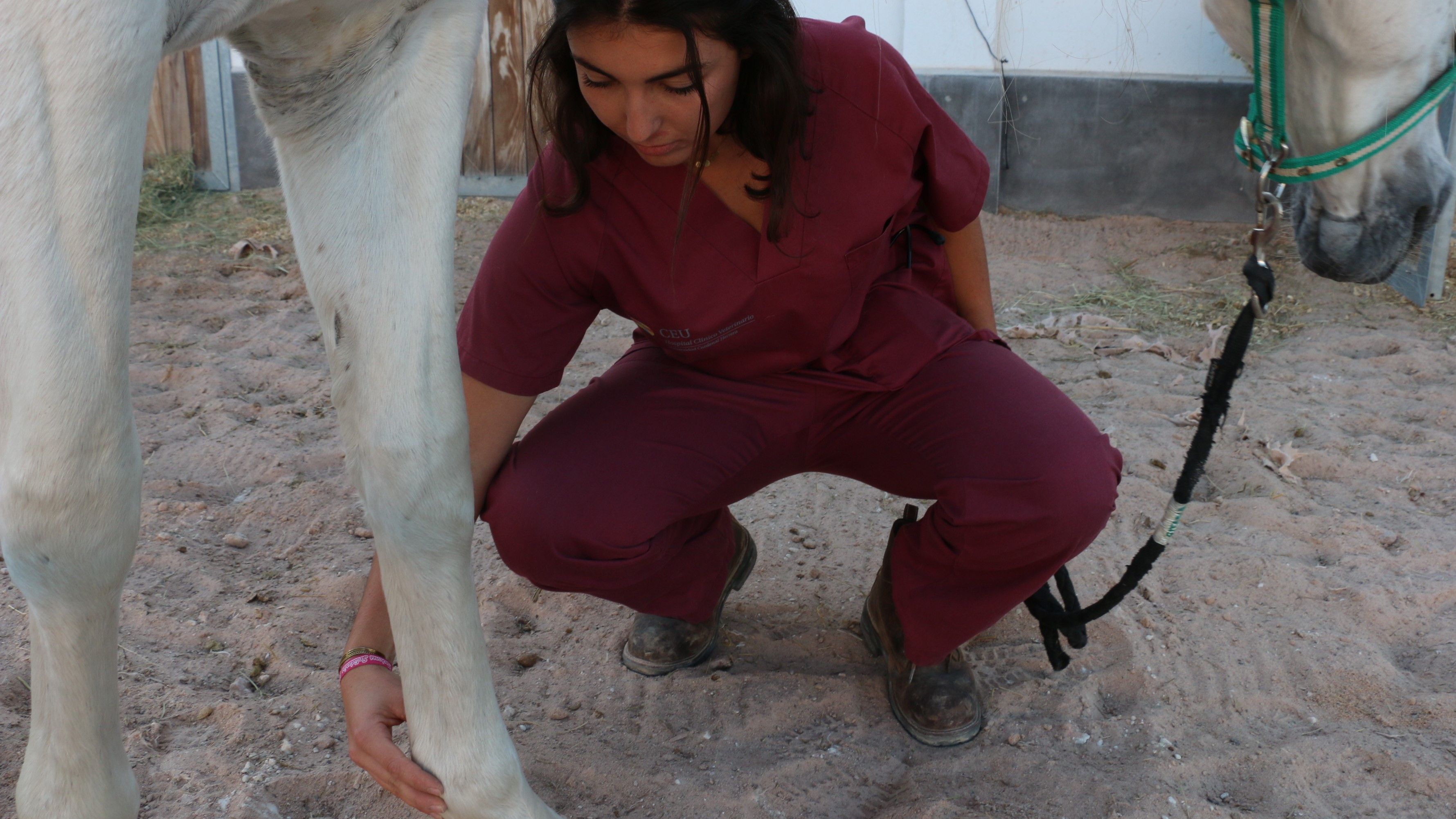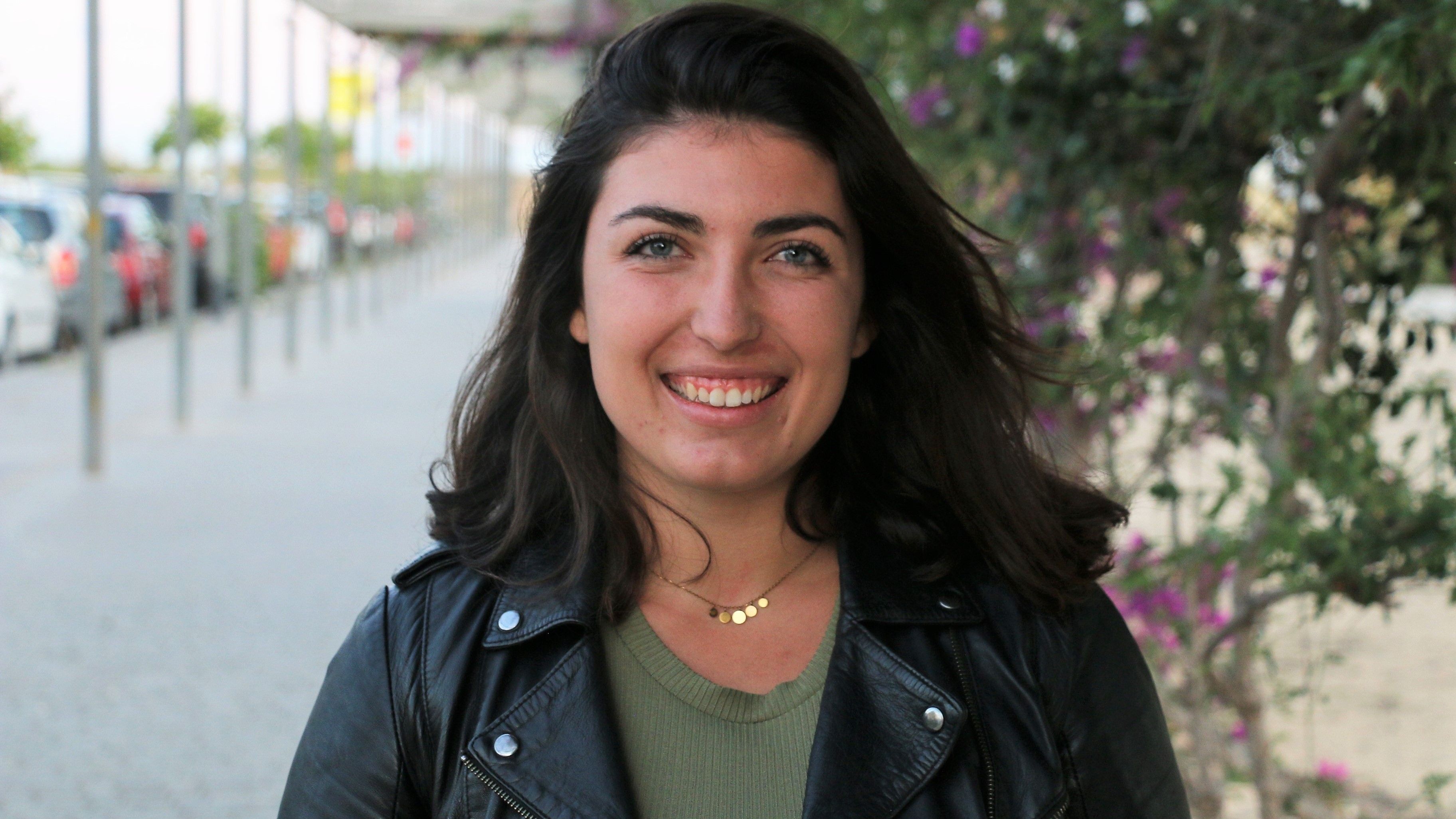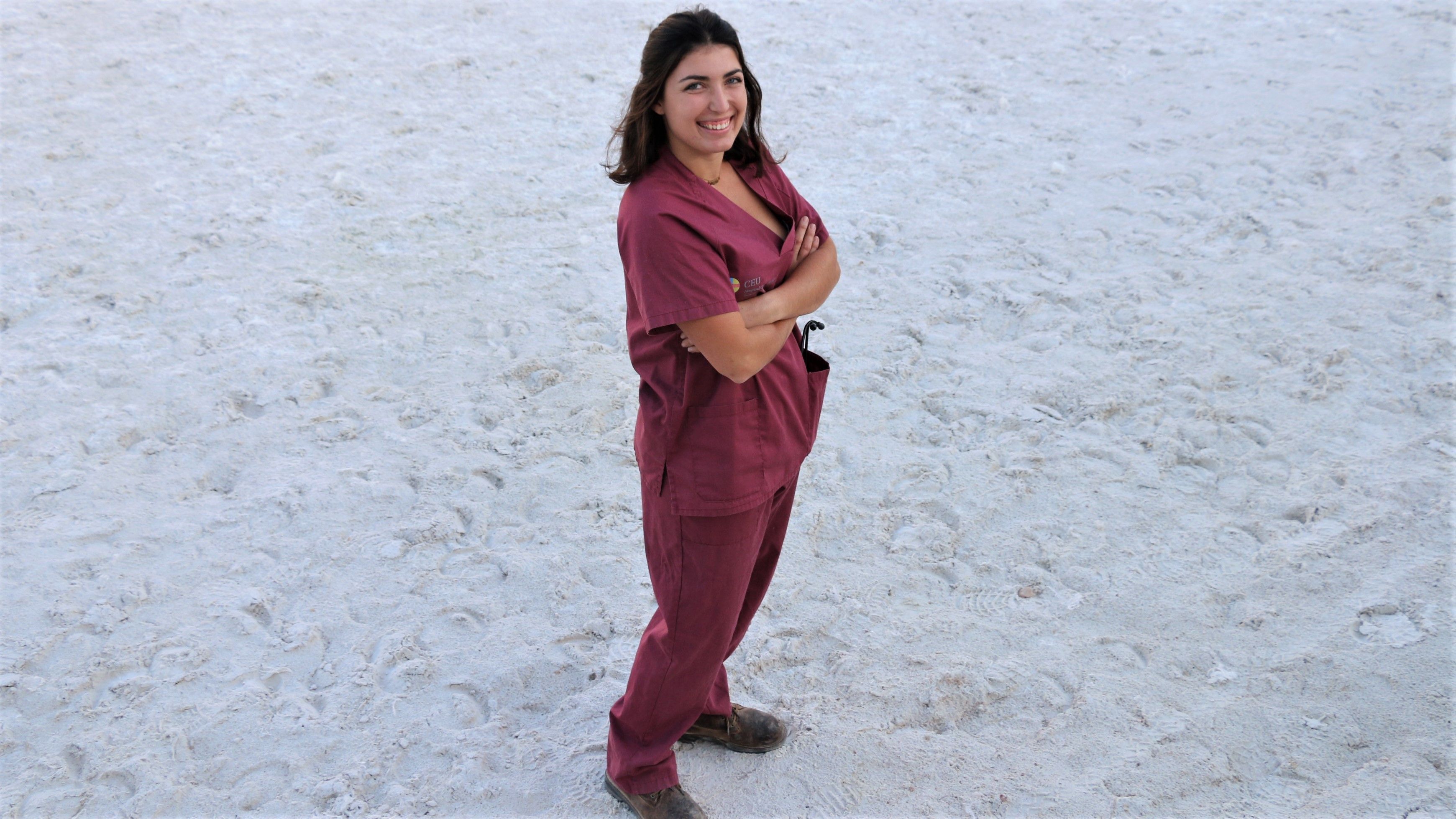When she finishes her degree in Veterinary Medicine in 2020, Paola (France) will have completed a comprehensive training programme undertaken comprising her lecture at the Faculty and practical training at the Hospital Clínico Veterinario, where she has worked as a student volunteer since the second year. Now, close to graduation, she continues her work at the hospital, or, as she puts it, she’s “taking full advantage of all the opportunities the University offers.”
In this interview with Paola, we discuss some of her learning experiences and some personal anecdotes from her time at the University, which has seen her move from a career in the treatment of small animals towards the world of horses.
 How many parts of the hospital have you worked in?
How many parts of the hospital have you worked in?
When I started in the second year, I began at the Pathological Anatomy service. I did around 150 hours that year. In the third year, I worked in the Reproduction section of the Equine Clinic and in Anaesthesia for small animals. Last year, I volunteered at the Internal Medicine and Surgery service for horses. I did more than 350 hours of practical training over the course of the year.
That’s way above average, which is usually about 200-250. It says a lot about your commitment.
I’ve learnt so much! Trying to fit all those hours in with my studies hasn’t been easy, but I’ve learnt a lot, and I’ve got a better grasp of the theory I learnt through applying it in practice. This has opened a lot of doors for me, and as time has gone on I’ve been able to do more and more things. I’ve put a lot of effort in and because of that I’ve been able to progress slowly but surely. When I started in the equine section, I didn’t know much at all – I didn’t even know my way around the hospital. Now, I do ultrasound scans, take blood for tests and change bandages.
Along with the support from the lecturers, the facilities here must have made your progression that bit quicker and easier.
Absolutely. We’ve got two operating theatres, a CAT scan machine for ponies, everything we need. It’s great that I’ve been able to do this work as a volunteer at the hospital and put into practice my theoretical knowledge here. The facilities are right on campus, so you don’t have to travel to them.
“BEING ABLE TO VOLUNTEER IN THIS WAY HAS HELPED ME TO DECIDE THE DIRECTION I WANT TO TAKE MY CAREER IN.”
You’re still with horses this year. Tell us about your most recent case or one that sticks in your mind.
We had an emergency in the middle of the night recently. It was a pony with colic, in a worrying state. I took care of him from 2 to 6 am. After initial treatment, he was placed in the infectious diseases section and he later made a full recovery.

How do the shifts work?
It’s important for them to be compatible with your studies. My shift times are flexible, enabling me to be here when I don’t have lectures. We can be part of the on-call service, be here at the weekends, and during the holidays. It’s really great to be able to be here at the beginning of the process and see it through to the end: to be here for the admission of the animal right through to surgery or the final medical treatment the animal receives.
When you act as a surgical assistant, what does that involve?”
We offer a Mobile Veterinary Care Clinic, so we need to have everything ready for an intervention. This whole experience is a huge learning opportunity, and that’s not just due to the fact that you learn new anatomical and clinical skills and get the chance to put your theoretical knowledge into practice, but also because it helps you decide the direction you want to take your career in.
The general direction of your career seems pretty clear, but are you leaning towards a particular area within the equine field?
I’d like to focus on the care of horses in competition: specifically show-jumping. This speciality requires you to move about, as you have to travel to where the animal is. This makes it more dynamic and that’s what appeals to me. I want to get the best possible education so that I can be a high-quality vet. I want to feel that certainty that comes with knowing that what you’re doing is the best thing for the horse. Horses are animals which demand respect and they’re noble animals that deserve to be treated by experts.

So where is this drive for excellence going to take you next?
After graduating from CEU UCH, I want to do an international residency. I’ve already applied for at one of the most prestigious veterinary faculties in the USA: at UC Davis, in California. I just need to get a few more documents together to get a place. I’m hoping to have it all ready soon, so that I can go there next year.
We look forward to hearing some good news soon. Let’s meet again when everything’s set for you to go out there and also when you come back, so you can tell us how it all went.
It’s a deal!
Thank you, Paola, for spending these years of discovery with us. Best of luck for the future!






